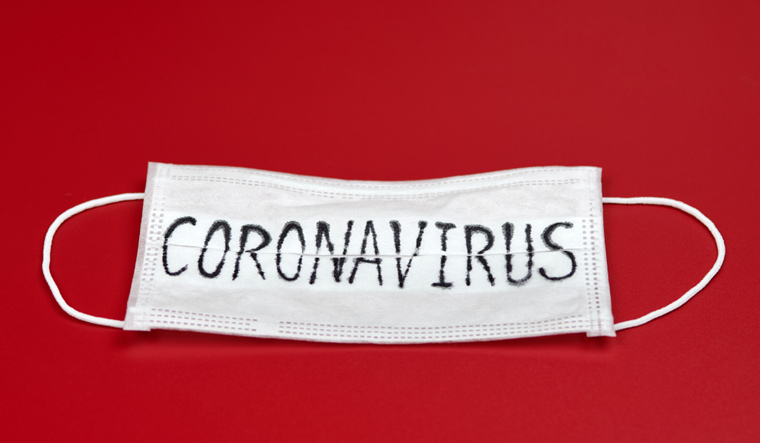In a bid to expand testing in India, the national task force for COVID-19 has released its latest guidelines for antibody tests to be used at the several disease hotspots. Experts say that these tests are cheaper and faster, and allow them to assess the scale of infection in a population.
According to the latest guidelines, these tests would be used in areas reporting clusters (containment zone) and in large migration gatherings/evacuation centres. Until now, India was doing only antigen tests—RT-PCR tests—that are highly sensitive and can detect even traces of virus, as opposed to tests that look for antibodies. But RT-PCR tests take a few hours, while antibody tests, done with blood samples, can be done in a few minutes.
With the latest advisory released on Friday, all those with symptoms of influenza-like illness— cough, cold, low-grade fever and sore throat—will be screened using the antibody tests. If the test is positive, then it is a “probable” case of COVID-19, according to the advisory. If the antibody test is negative, then the person should be sent for a real-time PCR test, if warranted. If the RT-PCR test is not done, the person is advised home quarantine and will have to undergo another antibody test after 10 days.
The guidelines emphasise that all cases of influenza-like illnesses—symptoms similar to that of COVID-19—should be monitored in health facilities. “Any surge in cases to be monitored and brought to the notice of surveillance officer/CMO for additional investigation,” the advisory stated. The ICMR is in the process of procuring 5 lakh kits for the antibody test.
According to experts, there are two types of antibodies—Immunoglobulin G (IgG) and Immunoglobulin M. IgM antibodies may be detected somewhere between seven to eight days after SARS-CoV2 infection, and IgG may be detected after two weeks or so.
“IgG antibody develops during the late phase of infection, and remains in the body even after the patient has recovered from SARS-CoV2. So, if a person tests positive for SARS-CoV2 specific IgG antibodies, then it means that the person had the infection, but they recovered. Having data from these tests will be useful to have an idea about the total number of SARS COV2 infected patients,” said Dr Sunit K Singh, professor of molecular immunology and virology, head, molecular biology unit, faculty of medicine, Institute of Medical Sciences, Banaras Hindu University.
“Once we have that total number (of infected patients) we may be able to the estimate actual fatality rate (death rate) of SARS-CoV2 in the Indian population.”
However, since antibodies appear late after infection, a person could have infection from the virus, but that may not be detected by the antibody test, Dr Tarun Bhatnagar, ICMR-NIE, member of the National Task Force for COVID-19, told THE WEEK.
There are issues of false negatives as well. Singh said if the IgG-based antibody tests (that develop after two weeks) are going to be conducted among the patients who are in the early phases of infection, then it will be negative in most of those cases.
"Therefore, we need to have IgM based SARS-COV2 antibodies detection along with the IgG, in order to detect early SARS-CoV2 and late infections,” he said.
In the UK, the government is considering “immunity passports” to SARS-CoV2 IgG positive individuals (recovered after first infection) for managing essential services by considering a notion that those might not get infected again by SARS-COV2.
But Singh said it is an idea whose time may not have come yet. “There is a word of caution here, too. SARS-CoV2 is an RNA virus, where mutations are very common. If the SARS-CoV2 acquires significant mutations in due course, then the neutralising antibody capacity of the previously developed SARS-CoV2 IgG might not be effective for the protection,” said Singh.
If the virus does not mutate, then the idea may work, he said, adding another caveat. “We still do not know how long the memory of the first attack of SARS-CoV2 stays in the body. If we take the example of the SARS outbreak that happened in 2003, then, the individuals who recovered during that time displayed a very short immunological memory. The antibodies faded after one or two years of SARS infection. So, the concept of 'Immunity Passport' still needs to be validated to be implemented anywhere. It is too early to buy this concept,” Singh said.
On April 2, the USFDA approved the first test for coronavirus antibodies for use in the United States. The test can be done at home, and gives you results in about 15 minutes.
Like the US, in India, too, at least one company–Bengaluru-based Bione—has come out with a “simple” antibody test that can be done at home.
The company urges “people to undergo a laboratory test if someone shows the symptoms of coronavirus, irrespective of the results of the COVID-19 screening kit.” “Since serological tests can require several days of viral incubation or discernible symptoms of infection before detectable level of antibody develops, this could result in false negatives. False negatives could give a false sense of comfort to individuals when used without clinical judgement. Public health risks with the self-test kit are also high because the company does not mention anything regarding the need for further confirmation by RT-PCR, other than to recommend that every person who tests positive should contact a doctor,” said Malini Aisola, co-convenor, All India Drug Action Network.
At a press briefing last week, Dr Raman R Gangakhedkar, head, epidemiology and communicable diseases, ICMR, had also cautioned against indiscriminate use of antibody tests at home.



